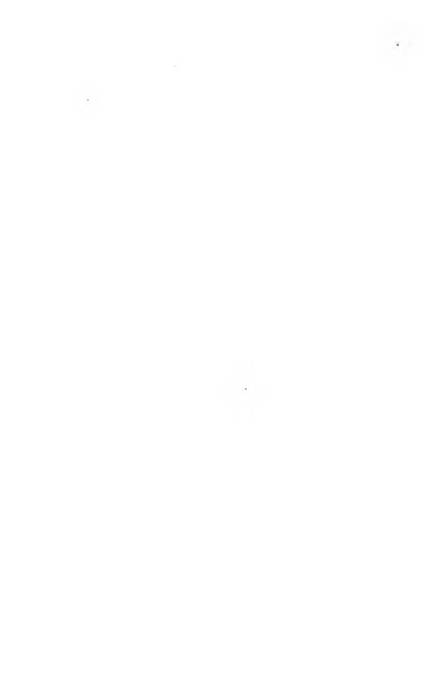Mercy (73 page)

they walked and there’s no saints there, M ao’s long march
didn’t go through Camden or Oakland or Detroit or Chicago.
I didn’t get close with Huey until I saw a certain picture. I think
it will be in m y brain until I die. I had admired him; how he
created a certain political reality; how he stood up to police
violence, how he faced them down, then the Survival
Program , free food for children, free shoes, some health care,
teaching reading and writing; it was real brilliant; and he ju st
didn’t die, I mean, you fucking could not kill him, and I
admire them that will not die. I knew he had run wom en but I
also been low ; I couldn’t hold it against him; I couldn’t hold
anything against him, really, because it’s rough to stay alive


and reach for dignity at the same time; you can fucking feed
children on top o f that and you got my respect. I stayed aloof,
also because I wasn’t some liberal white girl, middle-class by
skin, I had to take his measure and I couldn’t do it through
public perceptions or media or propaganda or the persona that
floated through the air waves. I saw him do fucking brilliant
things; I mean, you got to know how hard it is to do fucking
anything; and I saw him survive shootings, the police were
trying to assassinate him, no doubt; and I saw him transcend it;
and I saw him build, not just carry a fucking gun. Then there’s
this picture. H e’s been shot by the police and he’s cuffed to a
gum ey in an emergency room at Kaiser Hospital, October
1967. His chest is bare and raised; it’s raised because his arms
are cuffed to the legs o f the gurney, pulled back towards his
head; he’s wounded but they pulled his arms back so his chest
couldn’t rest on the gurney, so he’s stretched by the manacles,
his chest is sticking up because o f the strain caused by how his
arms are pulled back and restrained, it would hurt anyone, I
have been tied that way, it hurts, you don’t need a bullet in you
for it to give you pain, there’s a white cop in front o f him, fully
dressed, fully armed, looking with surprise at the camera, and
there’s this look on H uey’s face, half smile, half pain, defiant,
his eyes are open, he ain’t going to close them and he ain’t
going to die and he ain’t going to beg and he ain’t going to give
in and he ain’t thinking o f cutting his losses and he ain’t no
slobbering, frightened fool, and behind him there’s a white
nurse doing something and a sign that says “ D irty Needles
And Syringes O n ly, ” and she ain’t looking at him at all, even
though he’s right next to her, right against her side almost. I
have been cuffed that way, physically restrained. I have been
lying there. I have memories when I see this picture, I see m y
life in some o f its aspects, I see a hundred thousand porn
magazines too in which the woman, some woman, is cuffed
the same way, and the cop is or isn’t in the photograph, and the


cuffed woman is white or black, and I see on H uey’s face a
defiance I have never seen on her face or on m y own, not that I
have seen mine but I know what the photo would show, a
vapid pain, a blank, hooded stare, eyes that been dead a long,
long time, eyes that never stared back let alone said fuck you. I
see that he is defiant and that the cop is scared and that the cop
has not won. I see that even though H uey’s chest is raised
because his arms are stretched back and he is cuffed there is
pride in that raised chest. I see that his eyes are open and I see
that there is a clearness in his eyes, a willfulness, they are not
fogged or doped or droopy. I see that he is looking directly at
the camera, he’s saying I am here, this is me, I am, and the
camera can’t take his picture without making his statement. I
see that there is no look o f shame or coyness on his face, he
ain’t saying fuck me. I see that his nakedness is different from
mine, that his pride is unknown to me. I see that the cop and
the nurse are barely existing and that Huey is vivid and real and
alive, he’s jum ping o ff the page and they are robots, ciphers,
automatons, functionaries, he’s bursting with defiance, the
raised chest, however painful, is bursting with pride. I wonder
if anyone would ever jerk o ff to the picture; you know, black
boy in chains; but I don’t believe they would, I don’t, he’s
nobody’s piece o f meat, his eyes w ouldn’t let you and yo u ’d
w orry what he’d do when he’s uncuffed later, his eyes would
see you and he’d come to get you and yo u ’d know it in your
heart and in your hand. H e’s oppressed. He didn’t learn to read
really until he was eighteen. H e’s been low ; he knows. H e’s
put together a grassroots organization that’s defying the cops;
he’s made it international in scope, in reach, in importance.
H e’s poor. He was born socially invisible but darling look at
him now; manacled on that gurney he is fully vivid and alive
and the white nurse and the white cop are sim ply factotums o f
power with nothing that is their ow n; the life’s with him.
They got nothing that does express
lam\
whereas Huey, shot,


manacled, naked down to his waist, says
lam
with his strange,
proud smile that shows the pain and his clear, wide-open eyes
that don’t look away but look right through you, they see you
front to back; and I’ve been on that bed, it’s the bed o f the
oppressed, the same cuffs, the same physical pain, as bad, I
think as bad, the same jeopardy, I have been on that bed; and
they want him to give in and fade away and yet he has endured
and in the picture he is declaring that he will endure, it is in
every aspect o f his demeanor and the camera shows it, he’s
wounded but he’s not afraid, he’s manacled but he’s not
surrendering; he ain’t fucked; he just ain’t fucked; there’s no
other w ay to say it. Even if he’s been fucked in his life, by
which I mean literally, because I don’t know what he’s done or
not done and there’s not too many strangers to being fucked
on the street, he ain’t been fucked; it ain’t what he is. I love him
for it. I fucking love him for it. He’s spectacular and there is a
deep humanism in him that expresses itself precisely in
surviving, not going under, standing up; even tied down, he’s
standing up; and he’s gone beyond the first steps, the original
Black Panther idea that had to do with arming against police
violence, now he’s an apostle o f social equality and he is
fucking feeding the children; he’s been physically hurt and he’s
been laid out on the bed o f pain and his idea o f what’s human
has gotten broader and kinder and more inclusive, and that’s
revolutionary love, and I know it, and I got it, and while
there’s many reasons he can’t trust me, nor me him, we have
been on the same bed o f pain, cuffed, and I didn’t have his
pride, and I need him to teach me; I need to learn it— defiance,
the kind a bullet can’t stop. I don’t know i f he’s kind to women
or not and it worries me but I put it aside because there’s what I
know about that bed o f pain he’s cuffed to; I think I’m
annihilated inside by it; I think I’m shot to hell inside, with
nothing but gangrene everywhere there was a wound; I see, I
feel, an inner collapse that comes from the humiliation o f how
